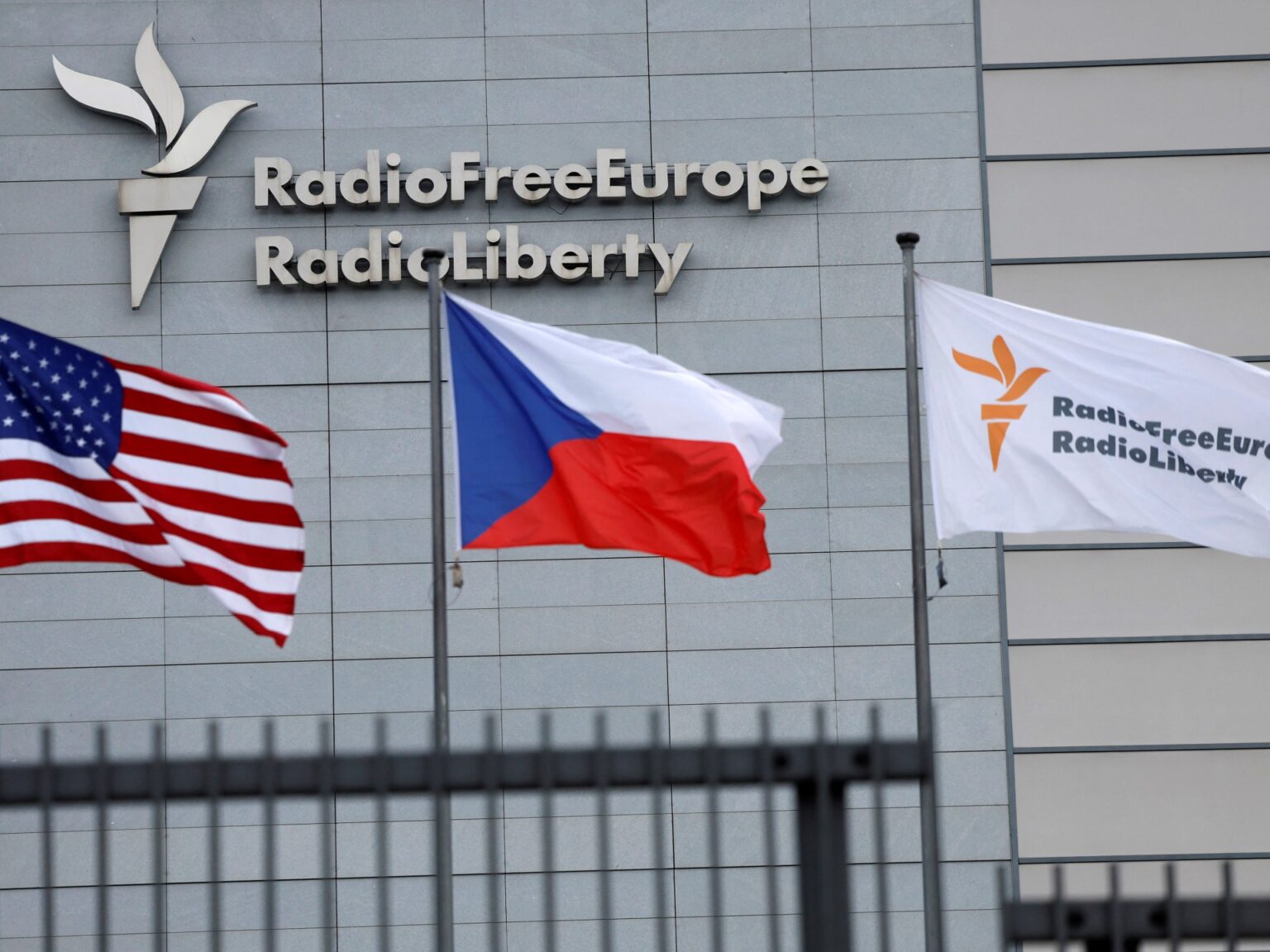Outlet is one of several media services whose funding was cut by the Trump administration amid an aggressive downsizing effort.
The European Union plans to step in to help save longtime media outlet Radio Free Europe/Radio Liberty (RFE/RL) after United States President Donald Trump’s administration abruptly stopped funding it.
The bloc’s foreign policy chief, Kaja Kallas, told reporters after a meeting of EU foreign ministers in Brussels on Tuesday that 5.5 million euros ($6.2m) will be provided to “support the vital work of Radio Free Europe”.
“It’s short-term emergency funding designed as a safety net for the independent journalism,” she added.
Trump suspended all funding for RFE/RL in March along with other US broadcasters, including Voice of America, to slash government spending.
Critics of the administration said the cuts are also politically motivated and part of a push to control and curb news media that do not hew to its outlook.
Trump earlier this month signed an executive order slashing federal subsidies to two US public broadcasters, PBS and NPR , accusing them of biased reporting and spreading “left-wing” propaganda.
Lawyers for RFE/RL, which has been operating for 75 years, secured an order last month from a US federal judge for the Trump administration to restore $12m that was appropriated by Congress.
The money has not been sent so far as lawyers said the service will have to shut down in June without the funding.
Kallas said on Tuesday that the EU funding would not cover the work of the outlet across the globe but would focus on interests closer to the agenda of the bloc.
“So our focus should be really to help Radio Free Europe to work and function in those countries that are in our neighbourhood and that are very much dependent on news coming from outside,” she said.
The EU’s top diplomat said she hoped the 27 EU member countries would also provide more funds to help Radio Free Europe longer term. Kallas said the bloc has been looking for “strategic areas” where it can help as Washington cuts life-saving foreign aid.
The outlet’s corporate headquarters are in Washington, DC, and its journalistic headquarters are based in the Czech Republic. The service has aired programmes in 27 languages in 23 countries across Eastern Europe, Central Asia and the Middle East and has more than 1,700 staff.
The outlet has been heavily criticised and banned by Russia for its coverage of the war in Ukraine.
Radio Free Europe began broadcasting in 1950 in the early years of the Cold War to several Eastern European nations that had become Soviet Union satellites. Radio Liberty began broadcasting to Russia a few years later. Both were initially funded by the US Congress through the Central Intelligence Agency.
https://www.aljazeera.com/news/2025/5/20/eu-to-sustain-radio-free-europe-with-emergency-funding-after-trump-cuts?traffic_source=rss


